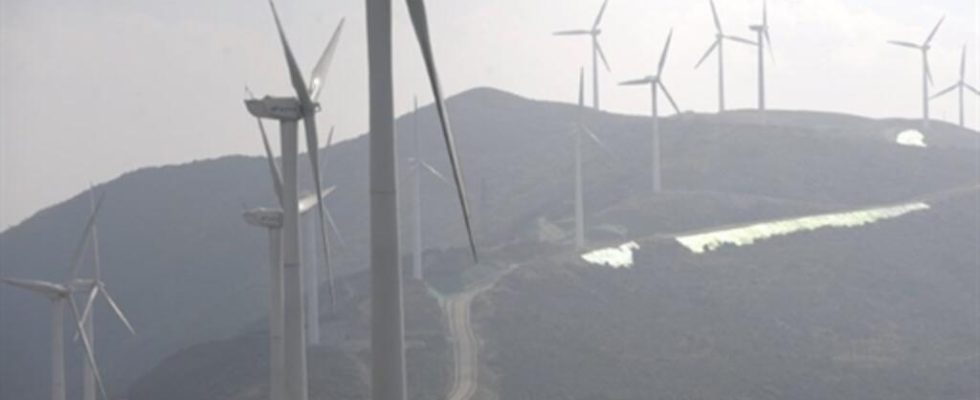New standoff between Beijing and the European Union (EU). This is the third time in two months that China has been targeted. After electric vehicles, rail and solar panels, Europe is this time tackling wind power, triggering a new investigation. Beijing denounces European protectionism and discriminatory measures.
3 mins
Brussels suspects China to drive down wind power prices thanks to massive public subsidies. According to the European lobby Wind Europe, “ Chinese wind turbines are sold at prices up to 50% lower than those of European competitors “.
China’s response was not long in coming. “ I think the outside world is concerned about the growing protectionist tendencies ofEuropean Union », Reacted the spokesperson for the Chinese Ministry of Foreign Affairs, Mao Ning, in response to the new EU investigation into Chinese wind power. “ And we urge Europe to respect WTO (World Trade Organization) rules and market principles » she continued.
At the beginning of April, the Chinese Chamber of Commerce in the EU said: seriously concerned ” by these investigationsdenouncing “ an act of economic coercion » in green technologies.
The European Commissioner for Competition, Margrethe Vestager, said she was studying the conditions for developing wind farms in Spain, Greece, France, Romania and Bulgaria. This low-cost energy strategy is “ now deployed in all areas of clean technologies », Estimates the commissioner.
China’s control over global solar energy production
This is why Brussels launched an investigation in February into the railway sector, targeting a subsidiary of the world’s leading railway manufacturer, CRRC, a candidate for the supply of electric trains in Bulgaria, but which ultimately withdrew from this call offer at the end of March. This was followed by a second investigation targeting two candidate consortia to design, build and operate a photovoltaic park in Romania. The first consortium includes a subsidiary of the Chinese giant Longi, the world’s leading manufacturer of photovoltaic cells. The second combines two subsidiaries controlled by the Chinese state group Shanghai Electric. With nearly 97% of its annual imports, the European market is flooded with foreign solar panels, and the vast majority of them are Chinese.
Furthermore, in a regulatory context distinct from anti-subsidy regulations, the EU began an investigation in September into Chinese public subsidies granted to electric cars.
China will control almost 80% of global solar energy production, a figure published in a report by consultancy group Wood Mackenzie. It exercises control over more than three-quarters of the components essential to the manufacture of solar panels and ensures 77.8% of the world’s production of photovoltaic panels.
Since 2020, imports of Chinese electric cars have increased in Europe, taking advantage of low customs duties. Since March 7, all Chinese-made electric vehicles entering Europe must be registered. This will allow the retroactive application of customs duties if an investigation reveals unfair subsidization practices.
Since 2023, Europe has therefore strengthened its trade defense mechanisms against dumping and illegal subsidies. To this end, it has also increased its investments in the research and development of green technologies. In response to these investigations, China in turn decided to initiate an anti-dumping investigation into spirits imported from the EU.
